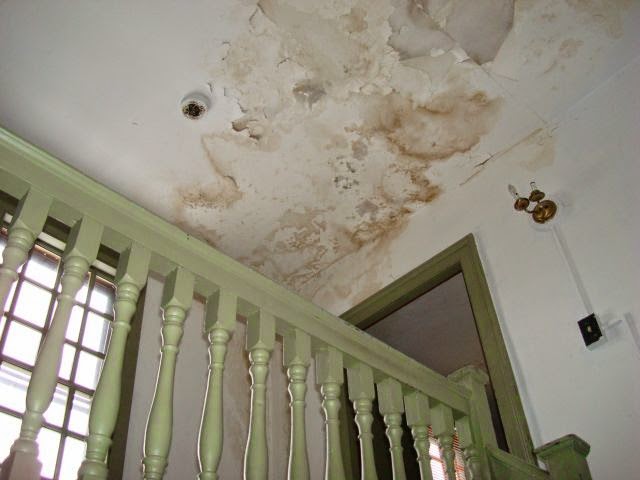For more information,
contact:
Matthew Lehn
Lehn & Vogt
Insurance
2980 S McCall Rd
Suite E
Englewood, FL
34224
Conduct an Insurance Check-up this Tax
Season
How
to Save, Avoid Risk
Englewood, FL
— Tax season is a great time to reexamine your financial risk with your
insurance adviser, says Matthew, Agent,
Lehn & Vogt Insurance . You may be wasting money on unnecessary coverage or
not realize where you are vulnerable to serious losses. In addition, the
insurance landscape has shifted since September 11th, and prices and
protections are changing in some key areas.
Because there are so many types of insurance available,
consumers should sit down with a reputable insurance professional who can help
sort through some of the confusion. Solid advice from a Trusted
Choice® insurance
agency may save homeowners thousands of dollars by outlining which kind of
coverage suits them. A comprehensive homeowners policy may even eliminate the
need for other smaller, more specific personal insurance policies. Here are a
few key issues consumers may want to explore when deciding if the insurance
coverage they have is really right for them.
AT RISK: HOW COULD YOU BE UNDERINSURED?
Home-based business. At least 60% of in-home entrepreneurs are
not properly insured, according to an IIABA study. Of those inadequately
protected, nearly half didn’t realize they were at risk because they thought
their homeowners insurance covered them. While a basic homeowners policy will
cover a computer used at home for personal use, it won’t protect entire home-based
firms. For example, homeowners’ policies typically provide $250 for computers
off-site and won’t cover lost data or business liability. That leaves many
people who use laptops for business and other entrepreneurs vulnerable.
Valuable collectibles. “Standard” homeowners’ policies usually
provide coverage for the “contents” of a home to 50% of the value of the house.
So, people with extensive collections of silver, antiques, jewelry, dolls, etc.
should consider additional coverage to protect these sentimental treasures. But
the best way to buy this type of coverage is from the home insurance company—an
“endorsement,” which is cheaper than a stand-alone policy. (For instance, a
person with $100,000 coverage on their home will have its contents insured to
$50,000. If that same person has $30,000 in antiques, that will significantly
subtract from coverage for the rest of the home’s contents, such as clothing or
furniture.) Many policies also set “sublimates” for contents insurance. For
instance, most limit theft coverage on jewelry to $1,000 and firearms to
$2,000. Those with more valuable jewelry, gun, or other collections should
consider additional protection.
High income bracket. People lucky enough to have high-profile
jobs or other accumulated assets should consider a comprehensive umbrella
liability policy to protect against serious financial loss. Unfortunately, many
people don’t have this coverage because they haven’t thought of it or they feel
that their basic insurance programs are adequate. A good umbrella policy can
cost as little as $150 per $1 million in coverage and insures against personal
liabilities, including car- and home-related claims.
No replacement cost coverage on their property. Replacement
cost coverage is 10 or 15% more expensive, but it replaces the item(s) with
like kind and quality. Most standard home insurance policies provide
replacement cost on the structure, but only “actual cash value” (ACV) on the
property. ACV is the actual cost to replace the item, but after depreciation.
With replacement cost coverage, a $1,000 TV set bought eight years ago would be
replaced with a similar type of TV, regardless of depreciation.
Children in college. An IIABA national survey showed that 80%
of college students who rent housing for the school year may not have adequate
coverage to protect their belongings when away from their primary residence. Incidentally,
it also revealed that one-in-seven college students lack health insurance
coverage and that an alarming 85% of families thought their health insurance
would cover a college student studying overseas for more than a month. In fact,
most health policies do not extend abroad and families need to know they may be
underinsured in that area.
Home remodeling. Home renovation can leave homeowners
vulnerable. One-in-four home remodeling projects increase the value of a home
by more than 25%, but too few consumers consider increasing their homeowners
insurance limits to reflect that increased value. Most insurance companies
require homeowners to insure their home to a minimum of 80% of its replacement
value to be eligible for full coverage. If coverage falls below that level and
the homeowner experiences a loss, they will be penalized with a partial
settlement. In addition, many people don't take basic steps to protect
themselves from liability exposure while construction workers are in the home. Consumers
should always ask for a certificate of insurance from anyone employed in their
home and seek advice from a good insurance agent.
SAVING MONEY: HOW COULD YOU BE OVERINSURED?
Both travel and flight insurance usually are costly and
unnecessary short-term policies that simply aren’t needed for those who have
broader health and disability insurance through an employer or other plan. Don't
be lured by the flood of travel-related insurance offers since September 11th.
Most typical health or life insurance policies include anything offered in
specific travel insurance packages. And incidentally, baggage insurance is
usually covered by a homeowners policy.
Credit life insurance. Trusted Choice® agencies recommend avoiding credit life
insurance (for new furniture or credit card debt, for example) under any
circumstance. These policies, offered by
credit card companies and other lenders, extend for the term of the loan and decrease
in value over its life. They are designed to protect a third party if the
consumer dies before the loan is paid off. However, they provide no protection
to beneficiaries, only to the company that offered the credit or loan.
Deductibles are too low. The owners of an expensive home need
to consider whether a low deductible makes sense. If someone steals the TV, it
isn’t going to break the bank. Those
same consumers need lots of insurance for a total catastrophe or if they get
sued. Therefore, they may want to take a $1,000 deductible and use the savings,
which can be 10 to 20%, and buy an "umbrella liability" policy to
give them $1 million or $2 million of coverage in case they’re sued.
Specific computer insurance policies. Though this coverage may
seem like a good idea, because so many people now have computers at home, a
standard homeowners policy will cover most basic personal computer equipment. If
you have a home insured for $100,000, you typically have $50,000 of personal
property coverage, including computer equipment not used for business. If used
for business, the home insurance policy typically provides $1,500 or $2,500 of
coverage for computers. Only people with home-based businesses, laptops used
for business outside the home, or elaborate high-tech equipment need to
consider extra coverage. But it’s cheaper to buy an endorsement to the home or
home-business policy rather than a separate computer policy. (By the way, the
same concept holds true for cancer insurance or trip-specific life insurance,
and other specific policies. Broader coverage is cheaper in the long run and might
be needed.)
DID YOU KNOW?
Renters insurance not only protects the contents of a rented
property, but also almost always shields the policyholder from liability. And
it’s not expensive (because you’re not insuring the building—that’s the
landlord’s responsibility). A typical policy that offers $15,000 in property
protection and $100,000-$300,000 in liability coverage can be as little as
$150-200 a year.
Dog owners whose pets are known to be aggressive should never
go without liability insurance or they may be in for a rude awakening if they
get sued. Bites are by no means rare. Companies pay out about $1 billion in
dog-related claims a year and estimate that one-third of all homeowners’
liability claims are due to dogs.
Insurance discounts are readily available for consumers who combine
family policies, use one insurance company for several types of coverage, or
take other measures such as using property theft deterrents or maintaining good
driving records. Consumers should consult with an independent insurance agent
at least once a year to evaluate changing needs and look for cost savings.
ARE YOUR PERSONAL
BELONGINGS AND AUTO “REALLY” COVERED?
DON’T HOPE SO…KNOW
SO
Allow me to take this
opportunity to introduce you to Lehn and Vogt Insurance Group,
Not just your typical
insurance agency, our team of insurance agents and financial specialist’s has
served our clients for over 13 years.
Formerly known as Lehn Insurance and Surfside Insurance and Financial
Services, we have combined as a fully independent insurance agency and are now
called Lehn & Vogt Insurance Group.
By partnering with independent insurance companies we are able to offer
insurance solutions for you your family and your business.
A glimpse of our
product offering includes:
Auto Life
Insurance
Home/Flood Medicare Health Plans
Renters Dental
Boat/Jet Ski Annuities
Motorcycles Disability
RV's & ATV's Retirement and Business Planning
Golf Carts Long
Term Care
Condo
Liability
Commercial/ Business
Matthew Lehn &
Jeffrey C. Vogt, CLTC
Agency Principals
2980 S.McCall Rd.,
Suite E Englewood FL 34224 Phone: 941.623.9190 ~ Fax: 941.698.8875


